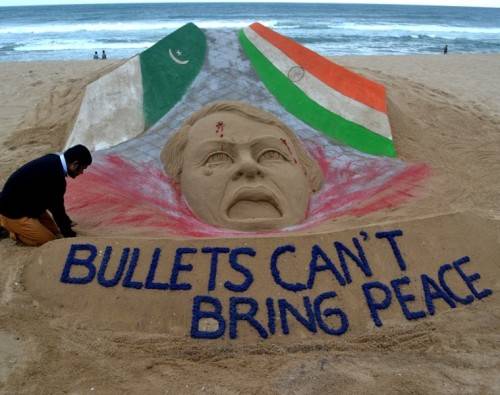So the 14th of August has come and gone. Every year, in this month, Pakistan and India celebrate their independence. Like thousands of other factors that join, yet separate, India and Pakistan, the Independence Day dates are no exception.
It begs the question whether independence is really the word Indians and Pakistanis should be using – since the British Raj had already decided to quit India. Semantics can be tricky. “Independence Day” sounds much nicer than “Goodbye and Thanks for All the Fish” Day. It also helps Pakistanis and Indians remember an idea necessary to their patriotism: India and Pakistan are two separate entities.
They are now, sure, since 1947. But a lot of similarities continue to conflict a purely patriotic narrative. India speaks Hindi, Pakistan speaks Urdu. The languages are fantastically similar. The countries not only share a similar taste in food, clothing and music, they also share thousands of years of a collective unconscious. That bond is tough to break.
This year marks the 68th Independence Day for both countries. In almost seven decades, both countries have struggled with varying monsters. Apart from home grown horrors of poverty to terrorism to domestic violence and female infanticide, both countries also engage in frequent exchange of fire on the line of control, in Kashmir and on foreign news desks. India blames ISI, Pakistan blames Raw; both refuse to reach at any kind of peaceful solution to troubled regional politics and militancy. August is ending and so another one will come next year. In the meantime, Sartaj Aziz plans to meet Hurriyat leaders in his visit to Kashmir much to the chagrin of Indian authorities. Hafiz Saeed got a court order to ban “Phantom” and took not-so-feigned jibes at Pakistan during his address to Indians in the UAE.
It’s a fascinating mix of bittersweet events. On one hand where we hear Indo-Pak politicians finger-wagging at each other from television screens, we also see hordes of Pakistani audiences flocking to watch Indian movies. Where we see constant hate speeches from various Pakistani/Indians against each other, we see Indian audiences falling in love with Pakistani actors and actresses. Where we see cross-border shelling, we see Narendra Modi and Nawaz Sharif grinning and shaking hands. And so the world turns.
George Bernard Shaw said that you’ll never have a quiet world till you knock the patriotism out of the human race. Pakistan and India’s military strategies do not benefit each in other in any way. The countries have far bigger problems than cross-border adventurism. According to the World Bank, both India and Pakistan have over 20% of their population is living at or under the poverty line. In India, 93 women are raped every day, according to National Crime Records Bureau. In Pakistan, over twenty thousand civilians have lost their lives in terrorist violence just between 2003 and 2015. It is surprising that these countries would, instead of focusing on internal affairs, infrastructure, health and education services and overall betterment for its residents, aim to fight each other and happily sit on nuclear weapons, no less.
As I child, I too grew up singing patriotic songs and wearing the country’s flag on my head, on the house, making sure the patriotism theme made its way into every food item, school play and homework essay during the month of August – but the older you grow, the more you realise that the concept of patriotism is as flimsy as any other. You realise that patriotism is more, or beyond, than just bullets and borders – it is in fact a sense of loyalty to the land you belong – which you express not by songs and sonnets and blind aping, but by constructive and vigilant criticism. It is the quality by which you help your country and its people improve on their situations rather than parroting tales of its perfection. You hope, if you are truly patriotic, that you have been able to benefit your country with your sincerity and logic and not your mindlessness sloganeering.
Perhaps this brand of patriotism is harder to sell than most. Because it is an idea that requires explanation and understanding. It also requires years of evolution of democracy and free speech and tolerance. Indo-Pak social structures and politics have come a long way and the subcontinent is rich when it comes to a history of coexistence. It is my hope, as a Pakistani and as a friend to Indians, that instead of looking at a future that smells frighteningly of an apocalypse, we remember the long history of tolerance and peace that the people of this land have shared for centuries.






